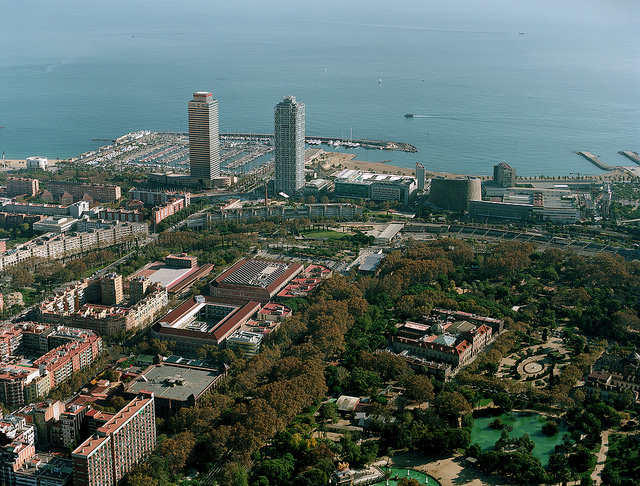UPF and the proliferation of university rankings
Recent years have seen a sharp increase in the number of such rankings, both national and international, in which UPF has carved out a place for itself among the leading young universities
‘University rankings are widely reported in the media and, thus, have a large social impact. People love lists and rankings, as if everything were as simple as a football league.’ So summarized Carles Ramió, vice-rector for Institutional Planning and Evaluation at UPF, the growing interest in university rankings.

According to the vice-rector, ‘Rankings are important for UPF, as we tend to do pretty well: we tend to be ranked first or within the top three in the national rankings and perform notably in the international ones.’ He added, ‘However, they are not equally good for everyone, as they depend on how the items are weighted and whether the ranking is done in absolute or relative terms. UPF is a very small, very young university that, for example, simply cannot compete in absolute rankings of scientific output.’
Nevertheless, the many rankings available (the most recent report by the European University Association on rankings, which looked at only those with the greatest impact and influence, identified fifteen) and the different positions a single university might have depending on how each ranking is calculated can often lead to confusion. Lluís Coma, a specialist in UPF’s Studies, Planning and Evaluation Unit, explained these disparities thusly: ‘Each ranking gives preference to a given area of universities’ activity, usually teaching, research, knowledge transfer, and internationalization. That preference is reflected in the choice of indicators taken into account and the relative weight given to each one in the final calculation of where each institution stands.’
Multiple prestigious rankings, different focuses
Some rankings are clearly oriented towards research (Leiden or Scimago); the Academic Ranking of World Universities (better known as the Shanghai ranking) gives more importance to indicators such as the number of alumni who are Nobel laureates; the Times Higher Education (THE) and Quacquarelli Symonds (QS) rankings, whilst taking teaching into account, primarily focus on research and institutional reputation. Other rankings aim to distance themselves from closed rankings of universities by allowing users to prepare their own rankings, based on the indicators they choose. This is the case with U-Multirank, promoted by the European Union, and its Spanish version, CyD Ranking, offered byt the CyD Foundation. Another key proposal at the national level is U-Ranking, sponsored by the IVIE and the BBVA Foundation.
In addition to the general rankings, many rankings, both national and international, seek to differentiate themselves from the rest by offering distinct products, whether that means ranking institutions by field (as the Shanghai and THE rankings do, the latter of which ranked UPF 67th worldwide in the social sciences), more specifically by subject (such as the QS, which ranks UPF 23rd in economics), or even preparing rankings of the top young universities.
UPF, twelfth-best young university in the world, according to THE
The ranking in which Pompeu Fabra has performed best is the Times Higher Education 100 Under 50 ranking, a list of the world’s top one hundred universities under 50 years old. In the 2015 edition, UPF was ranked twelfth in the world (up one slot from 2014), fifth in Europe, and first in Spain.
According to Phil Baty, the editor of Times Higher Education World University Rankings, ‘UPF is a dynamic institution, strongly positioned in our ranking of young universities. I think that not only being young, but also being small, could be an advantage when it comes to maintaining a specialized, flexible, responsive university in today’s changing times, one with a simple management system that allows people to work, without requiring every decision to be based on some labyrinthine bureaucracy.’
Baty explained why the oldest institutions tend to dominate the THE’s general ranking, noting, ‘Traditional older universities have had time to accumulate considerable wealth and to build large alumni networks spanning multiple generations. They are usually part of the very structure of major cities and, thus, tend to have a good reputation that helps them stay on top.’
In the framework of the events to mark its 25th anniversary over the 2015/2016 academic year, UPF will host the annual THE Young Universi-ties Summit, a meeting of the top 100 universities under 50 years old. The event will take place on the Ciutadella campus on 6 and 7 April 2016 and will be attended by the heads of the participating institutions.
Rankings as part of the university’s strategy
According to Ramió, these university rankings are beneficial: ‘The rankings have a clear positive externality; they keep universities focused on continuous improvement and excellence, as they all want to be well-ranked. They introduce a competitive logic in the system that is healthy in that each institution tries to do things better’, he said.
This notwithstanding, the vice-rector also warned of the potential negative impact of rankings in the event of excessive reliance on them. ‘You cannot design university policy solely with a view to doing well in the rankings and improving certain weighted aspects, such as research in international papers, whilst neglecting other very relevant aspects for the university community and society at large. UPF is quite cognizant of this’, he said.
